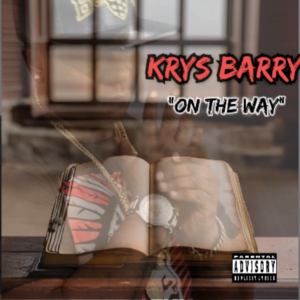
Published
10:00 pm PST, Friday, December 6, 2019
The Aspect Chamber Music Series capped off its 2019 New York City season with a concert of Russian music from an ad hoc piano trio that sounded as if its members were longtime collaborators. American cellist Zlatomir Fung, fresh off his First Prize at the International Tchaikovsky Competition, joined two noted Russians, pianist Pavel Nersessian and violinist Misha Keylin, in Mikhail Glinka’s “Trio Pathétique” and Tchaikovsky’s titanic Piano Trio in A minor, Op. 50.
“Elegy” by Apollinary Vasnetsov
As always at Aspect concerts, a brief lecture placed the music in historical context. Stephen Johnson’s anecdote-laden illustrated talk was as entertaining as it was enlightening. He lithely associated the composers and their work with 19th-century German Romanticism, but also with Russian paintings with which I (and probably most of the audience) was unfamiliar.
Leading off the concert was an extra treat: Nersessian playing Anatoly Lyadov’s “Three Pieces” Op. 57. Entirely new to me, these very brief piano works sounded like a distillation of Chopin’s melodicism.
The immensely talented Lyadov (1855-1914), championed at one time by Mussorgsky himself, was well-known and well-connected in his time. But after he married rich he mostly left off composing, leaving behind a modest (no pun intended) oeuvre that’s relatively little known today outside Russia. (Though by pure coincidence, as I was sitting in my car the next morning drafting this review, I caught the tail end of Lyadov’s “Eight Russian Folk Dances” on WQXR.)
An interesting music-history note: Lyadov was Diaghilev’s first choice to write the Firebird ballet score. When uncooperative Anatoly didn’t come through, the choreographer turned to a then-unknown by the name of Igor Stravinsky.
Of Lyadov’s Op. 57 Prelude, Valse, and Mazurka, only the first is still popular in Russia, Nersessian told me, but the pianist’s heart was clearly in all three. Concise, devoid of Romantic fluff or razzle-dazzle, the prelude is a tiny plangent gem. The scampering waltz and graceful mazurka were equally pearly in Nersessian’s hands. He played the latter especially sensitively, with lovely rhythmic subtlety.
Having previously heard Glinka’s music mostly on recordings, I looked forward to the 1832 “Trio Pathétique” with anticipation. The composer, heavily influenced while on a tour of Europe by early German Romanticism and its elegiac tradition in particular, affixed to the score the heading “I have known love only through the unhappiness it causes.” The piece does feel mournful, but in a complex and luminous way.
The musicians’ fine sense of collaborative balance was evident from the start as they vividly realized Glinka’s wonderful textural writing. Scintillating piano runs, an eloquent 6/8 trio section, and successive turns at the fore by all three instrumentalists marked the movements as they glided one into the next. All three musicians displayed a mature melding of feeling and technique that cast a thoroughly affirmative light on the music. There was nothing showy, no displays of ego or too-eager virtuosity. Maybe because a recent snowstorm had allowed them only one rehearsal, their concentration was fixed on their parts and their collective performance. If so, the happy result was a performance purely in the service of the music.
I knew we were in good hands with Tchaikovsky’s two-movement Piano Trio in A minor, too, the minute the cello triplets snuck in near the beginning. True, for a couple of minutes I wondered if the performance might be in need of a little more flair. Like the Glinka, it lacked excess. But I soon got caught up in the momentum, the sustained and growing energy as the simple themes developed, stormy and impassioned but always under control, the musicians grappling confidently with the composer’s famous imagination.
That held true even through the second movement’s sequence of amazing variations, despite that form’s sharp contrasts and rapid changes. The musicians brought out the humor and sweetness, the resolve and the thunder, the intricacies of the fugue-like sections, the brightness and, at the end, the darkness. It was easy to imagine woodwinds, brass, even a toy piano. The violin and cello mourned in baleful unison in the overwhelming minor-key closing variation, harking back to the elegiac first movement and closing the circle on a fine concert.
Johnson had likened Tchaikovsky’s compositional struggles, and his difficulty liking what he had written, to the grit that allows an oyster to create a pearl. Maybe it was the stress of interrupted travel plans and brand-new collaborators, but this trio were able to click remarkably well and render fully engaged accounts of some of the finest works of some of Russia’s greatest composers.
For upcoming concerts in the Aspect Chamber Music Series, see the Aspect website.
The post Concert Review: Aspect Chamber Music Series – ‘Russian Elegy’ (Music of Tchaikovsky, Glinka, Lyadov) appeared first on Blogcritics.






